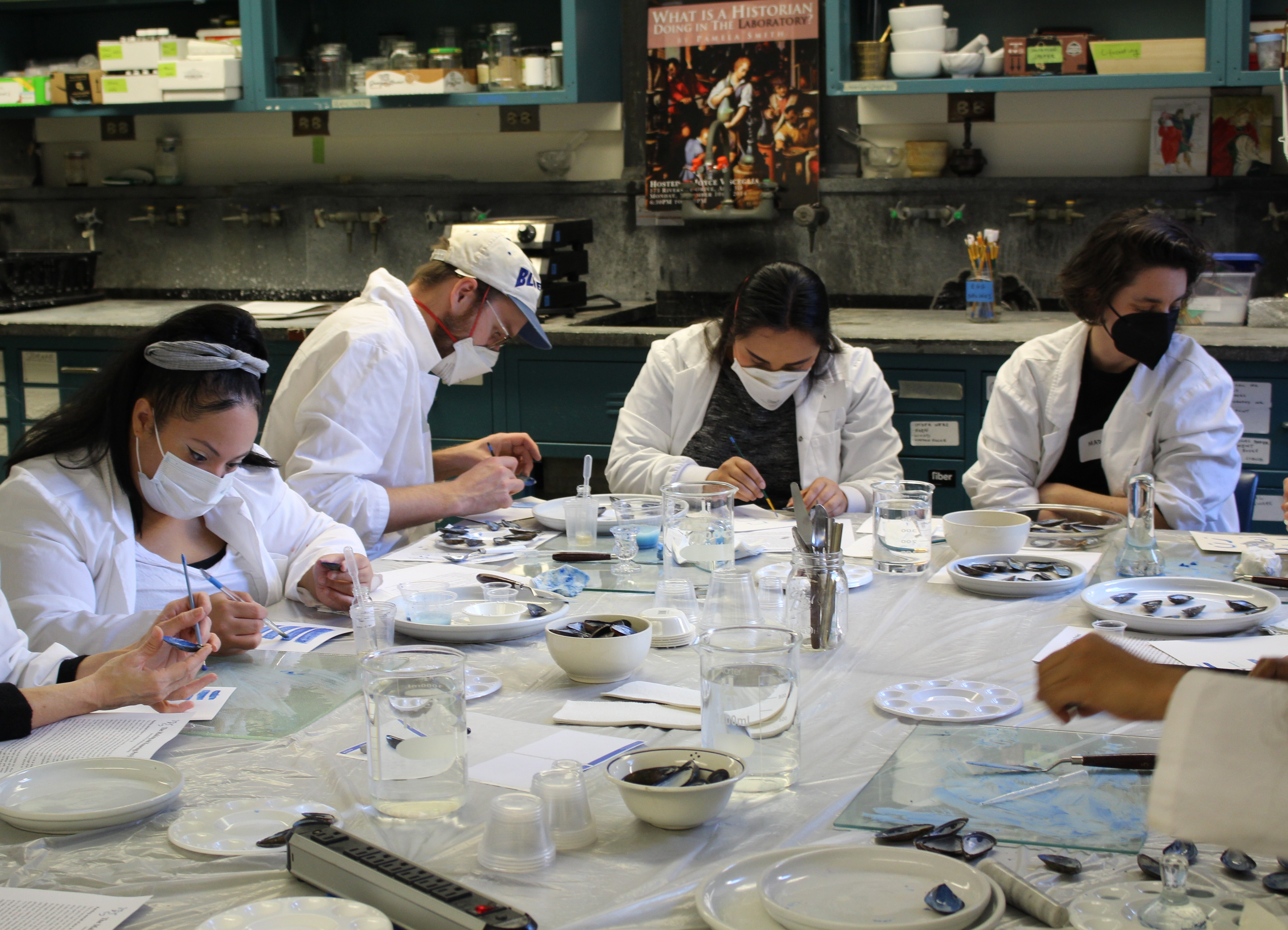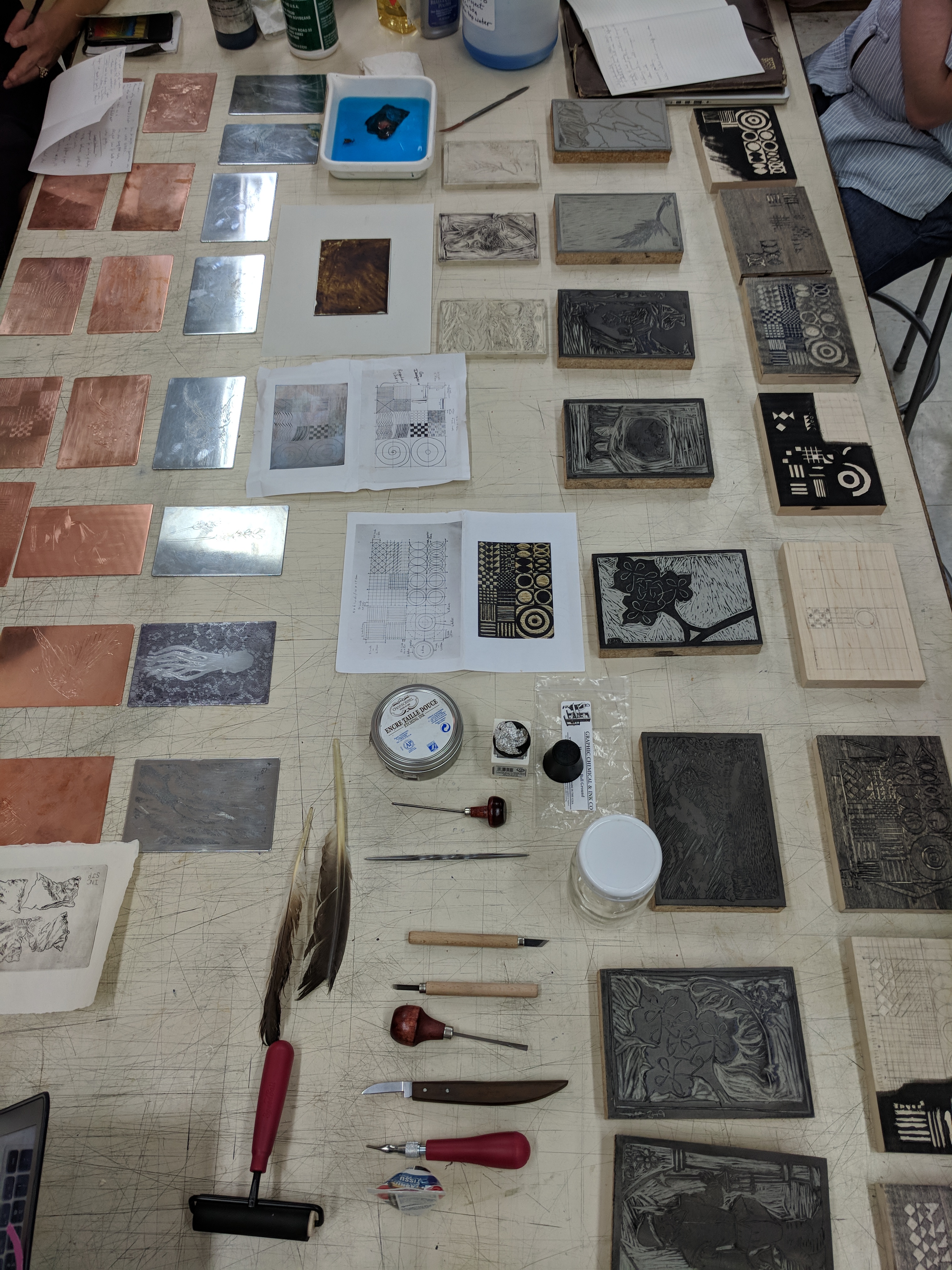Introduction
Introduction to the Research and Teaching Companion
Research and Teaching Companion
This Research and Teaching Companion is intended to support you in engaging with hands-on experimentation in your teaching, research, and/or artistic practice and making.
The resources included in this Companion to the digital edition Secrets of Craft and Nature in Renaissance France result from many years of research, teaching, and learning together during the Making and Knowing Project’s creation of the edition (2014-2020) and since its publication in 2020.
Secrets of Craft and Nature in Renaissance France is a digital critical edition and English translation of the French manuscript Ms. Fr. 640 held by the Bibliothèque nationale de France. This edition presents a rich and unique sixteenth-century technical text that provides a view into the material, technical, and intellectual world of the late sixteenth century. It gives rare insight into techniques and processes for making art and daily life objects, as well as into how nature was used in art, collected, and appreciated in early modern Europe.
During the intensive series of collaborative courses, workshops, and conferences through which Secrets of Craft and Nature was created, the Making and Knowing Project has had much opportunity to reflect on the challenges and the joys of inserting hands-on work into the text-centered training of the university. We hope the materials we developed through this experience will provide food for thought and action and a guide of sorts for your own experiments in historical reconstruction and making practices. They are intended to be used flexibly, and we invite you to adapt them to fit your own resources and needs.
For more about the creation of the Companion and the Making and Knowing Project’s suite of Research and Teaching Resources, see About M&K.

The Companion’s Resources
Making & Knowing Syllabi
Syllabi from the Making and Knowing Project’s courses model the integration of hands-on activities with discussion of relevant concepts and texts, and they can be mined for possible readings, discussion prompts, and hands-on lessons. These syllabi contain links to essays from Secrets of Craft and Nature for use as course readings and suggest how to plan and coordinate hands-on activities. Student Projects created in these courses can be consulted by instructors and students for inspiration and to consider the many ways to engage with Ms. Fr. 640 and its digital edition.
Lesson Plans for Hands-on
Making and Knowing Lesson Plans and the associated teaching resources included in the Companion provide step-by-step guidance in planning, tools, ingredients, sourcing, and the processes of hands-on activities. These Lesson Plans can be integrated into courses or research projects as skill-building exercises, they can be used to spark the historical imagination and raise questions, or stand alone as activities that immerse students or audiences in hands-on work with materials.
Student Projects
Numerous Student Projects were developed in the course Making and Knowing in Early Modern Europe: Hands-On History, in which students explore Secrets of Craft and Nature and undertake a variety of hands-on activities and research in connection with it. The resulting student projects range from humorous to scholarly, pedagogical, and public facing. These projects provide models for the variety of paths by which to enter into Secrets of Craft and Nature, extending its content in creative ways and demonstrating how hands-on experience can be integrated into student learning.
M&K Resources in Use
The Making and Knowing Project has many collaborators from K-12 to university and in non-traditional schools and public outreach institutions who have piloted the Making and Knowing Project’s methods, course elements, and lesson plans in their research projects, courses, student activities, and public events. The fruits of their experience, their syllabi, student projects, and making activities are valuable for those seeking to integrate the Making and Knowing resources available in this Companion.
Reflections on Hands-On
Why engage in hands-on activities in teaching and research? In this section, the Making and Knowing Project team members and collaborators reflect in lectures, videos, and testimonials on their reasons for and experience of engaging in hands-on teaching and research.
Digital Making and Knowing
The Making and Knowing Project has developed open access digital resources, including a publication tool for making your own edition, model projects for using the data of Secrets of Craft and Nature, digital literacy tools, syllabi, and ideas for student activities.
Digital Development of the Companion
The Making and Knowing Project has pioneered an approach to “minimal computing” that aims to make all online content openly and sustainably available through an emphasis on durability and the use of basic technologies and workflows that have a greater likelihood of persisting. The digital development of the Companion, like the digital development of Secrets of Craft and Nature, has prioritized the generation and preservation of all data in sustainable, open formats to ensure adherence to open-access and open-source standards wherever possible. This commitment is founded on the conviction that our digital publications should serve as resources to a wide and diverse audience, enabling knowledge exchange now and into the future.
The Companion relies upon a common and well-established technology stack: HTML/HTML5 with CSS and JavaScript served statically from a webserver. The site is built using the static site generator Hugo and maintained in the Research and Teaching Companion Github repository.
How to Cite the Companion
Making and Knowing Project, Naomi Rosenkranz, Pamela H. Smith, Tianna Helena Uchacz, and Terry Catapano, eds. Making and Knowing Project Research and Teaching Companion (New York: Making and Knowing Project, 2024), https://teaching640.makingandknowing.org.
Sponsors
The Henry Luce Foundation
The Samuel H. Kress Foundation
The Gladys Krieble Delmas Foundation
The Research and Teaching Companion is based upon work supported by the National Science Foundation under SES Award No. 1734596. Any opinions, findings and conclusions or recommendations expressed in this Companion are those of the authors and do not necessarily reflect the views of the National Science Foundation.
